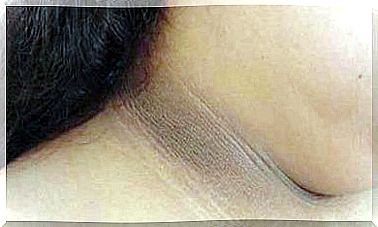Symptoms Of Fish Poisoning
The appearance of vomiting, diarrhea, fever, abdominal pain and decay are the symptoms that may indicate that we are facing intoxication due to the consumption of fish, among other foods. Probably, they can have their origin in the consumption of fish and shellfish contaminated, either by bacteria or toxins.
These conditions can compromise the life of the patient by not applying timely treatment, due to dehydration and electrolyte disturbances. The child population and the elderly are the most susceptible to these complications.
Fish poisoning
At certain times of the year, various species of fish and shellfish contain poisonous biotoxins, present even when well cooked. According to the Centers for Disease Control and Prevention (CDC), it is considered a risk underrecognized by travelers, especially those traveling to the tropics and subtropics.
Fish that have these toxins do not look bad, smell bad, or taste bad. Cooking, marinating, freezing or stewing them does not destroy the toxin, so fish poisoning inevitably occurs.
1. Ciguatera poisoning

Reef fish from the tropical and subtropical waters of the West Indies, the Pacific Ocean and the Indian Ocean pose the greatest threat. Cases have been reported in the United States, Hawaii, Guam, Puerto Rico, the Virgin Islands, and Florida.
More than 400 species of fish, particularly reef fish, are believed to contain the toxin that causes ciguatera poisoning.
What are the symptoms of ciguatera?
Generally, symptoms of ciguatera poisoning appear within a few minutes to six hours after eating the toxic fish. Symptoms include a variety of gastrointestinal, neurological, and cardiovascular abnormalities. Symptoms can include the following:
- Sickness.
- Vomiting
- Watery diarrhea.
- Headache.
- Numbness and tingling around the mouth and extremities.
In more severe cases, the person suffers from muscle pain, dizziness and sensations of reverse temperature, that is, hot things seem cold and cold things seem hot. You may also experience irregular heart rhythms and low blood pressure. Generally, symptoms resolve after several days and can last up to four weeks.
2. Scombroid poisoning
Scombrotoxin, also known as scombroid poisoning or histamine poisoning, occurs after eating fish that contains high levels of histamine due to improper food handling.
These fish, which include dolphin fish, albacore, common tuna, yellowfin tuna, chough, mackerel, sardine, anchovy, herring, marlin, amberjack and abalone, have large quantities histidine. As a consequence of improper storage, the bacteria convert histidine into histamine, causing intoxication.
What are the symptoms of scombroidosis?
Symptoms usually appear within minutes to an hour after eating the affected fish. They generally last up to three hours, but can last up to several days. Symptoms can include the following:
- Sickness.
- Vomiting
- Diarrhea.
- Trouble breathing
- Drop in blood pressure
- Stabbing headache
- Hives and itchy skin
- Tingling or burning sensation in the mouth.
- Skin rash on the face and upper body.
The symptoms of scombroidosis may resemble other conditions or health problems. Many cases of “fish allergy” are actually scombroidosis. Always talk to your doctor for a diagnosis.
3. Tetrodotoxin poisoning, also called “puffer fish poisoning”

Tetrodotoxin, also called puffer fish poisoning or fuguism , is a much rarer form of fish poisoning. However, it is potentially very serious. It is almost exclusively associated with eating puffer fish from the waters of the Indo-Pacific regions.
On the other hand, cases of poisoning, including deaths, have been reported by puffer fish from the Atlantic Ocean, the Gulf of Mexico and the Gulf of California.
What are the symptoms of blowfish poisoning?
Symptoms usually appear within 20 minutes to 3 hours after eating the poisonous puffer fish. The following are the most common symptoms of blowfish poisoning:
- Diarrhea.
- Seizures
- Headache.
- Abdominal pain.
- Cardiac arrhythmia.
- Nausea and vomiting
- Difficulty speaking
- Respiratory insufficiency.
- Generalized muscle weakness.
- Numbness of the lips and tongue.
- Numbness of the face and extremities.
- Sensation of luminosity or of floating.
In the most severe cases, death can occur within four to six hours of poisoning. Therefore, it is essential to seek immediate medical assistance.
How can I avoid fish poisoning?
To avoid ciguatera poisoning, avoid eating fish that often carry it. These include amberjack, grouper, snapper, sturgeon, mackerel, barracuda, and moray eel. The venom becomes more concentrated in the internal organs of the fish, so you should never eat these parts of a fish.
To avoid scombroid poisoning, do not eat any fish that has not been properly refrigerated. Be especially careful when eating fish such as tuna, sardines, mackerel, dorado, or anchovies.









